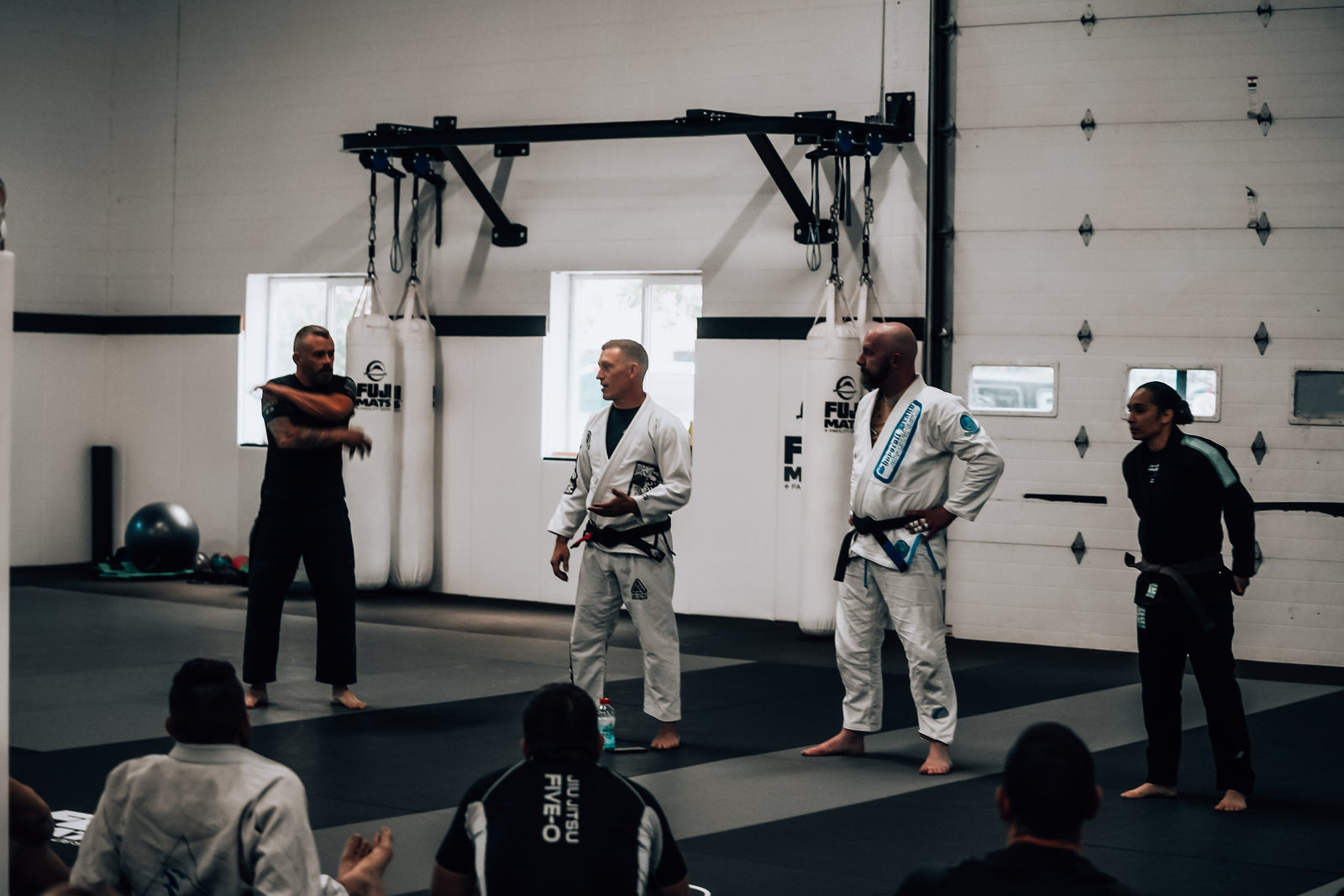Building Well-Rounded Cops Through Jiu Jitsu Training

In addition to building control and defense skills, consistent Jiu Jitsu training can help improve an Officer's cardiovascular endurance, flexibility, and strength. It also builds mental fortitude and teaches you to be calm under stress. All of these are vital components to being a well-rounded officer and can help prolong your career and life.
Physical Fitness: Strength, Flexibility and Cardio in One Workout
Cardiovascular Endurance
Regular Jiu Jitsu training involves rigorous drills and sparring sessions, which can significantly boost cardiovascular health. This improved endurance can be crucial during prolonged use of force encounters, foot pursuits, or in situations that demand any type of sustained physical activity, such as administering CPR.
Strength and Flexibility
Jiu Jitsu focuses on using body mechanics over brute force to control an opponent. This requires and develops core strength, limb coordination, and overall body flexibility. For police officers, these strengths are vital in controlling resisting suspects safely and effectively, reducing the risk of injury to both the officer and the suspect.
Mental Endurance: Sharpening the Mind
Jiu-Jitsu is not just a physical workout; it's a mental one too. Consistently being stuck in bad positions and having to figure out ways to get out builds a greta deal of mental toughness. This mental aspect carries over into other aspects of your job and life by improving critical thinking skills, decision-making under stress, and maintaining calm in chaotic situations, especially those involving use of force.
Strategic Thinking
Jiu Jitsu practitioners learn to anticipate and react to whatever their opponent is doing. This skill is directly transferable to law enforcement, where officers must often make split-second decisions based on the behavior of individuals they encounter.
Stress Management
The controlled environment of Jiu-Jitsu training allows officers to experience high-stress scenarios in a safe setting, preparing them to handle real-life high-pressure situations more effectively.
Control and Defense: Essential Skills for the Street
Jiu-Jitsu is renowned for its emphasis on control and defense, making it particularly relevant for law enforcement.
Control Over Power
The art teaches control over an opponent without causing unnecessary harm. This approach aligns well with modern policing principles, which emphasize de-escalation and minimal force. By using leverage-based techniques, officers can manage confrontations without resorting to excessive force.
Self-Defense
Jiu-Jitsu provides officers with practical self-defense techniques that are effective against larger or stronger opponents. This is crucial in street scenarios where officers might face unpredictable threats.
Ground Control
Many physical confrontations end up on the ground, and
Jiu-Jitsu equips officers with the skills to handle such situations. Ground fighting techniques are a core component of Jiu-Jitsu, enabling officers to defend themselves effectively in these common yet challenging scenarios.
Community Impact: Building Trust through Skill
The practice of Jiu-Jitsu can also positively impact the relationship between police officers and the communities they serve. When officers are skilled in controlling situations with minimal force, it builds community trust. Demonstrating a commitment to responsible, controlled, and skilled physical engagement can go a long way in fostering public confidence in law enforcement.
Conclusion: A Holistic Approach to Law Enforcement Fitness
Incorporating Jiu-Jitsu into police training programs offers a holistic approach to officer fitness and preparedness. It develops the physical, mental, and tactical skills essential for modern policing. By embracing this martial art, law enforcement agencies can equip their officers with the tools necessary for effective, safe, and community-focused policing. As such, Jiu-Jitsu is not just a martial art; it's an investment in the well-being and effectiveness of police officers and the communities they serve.



